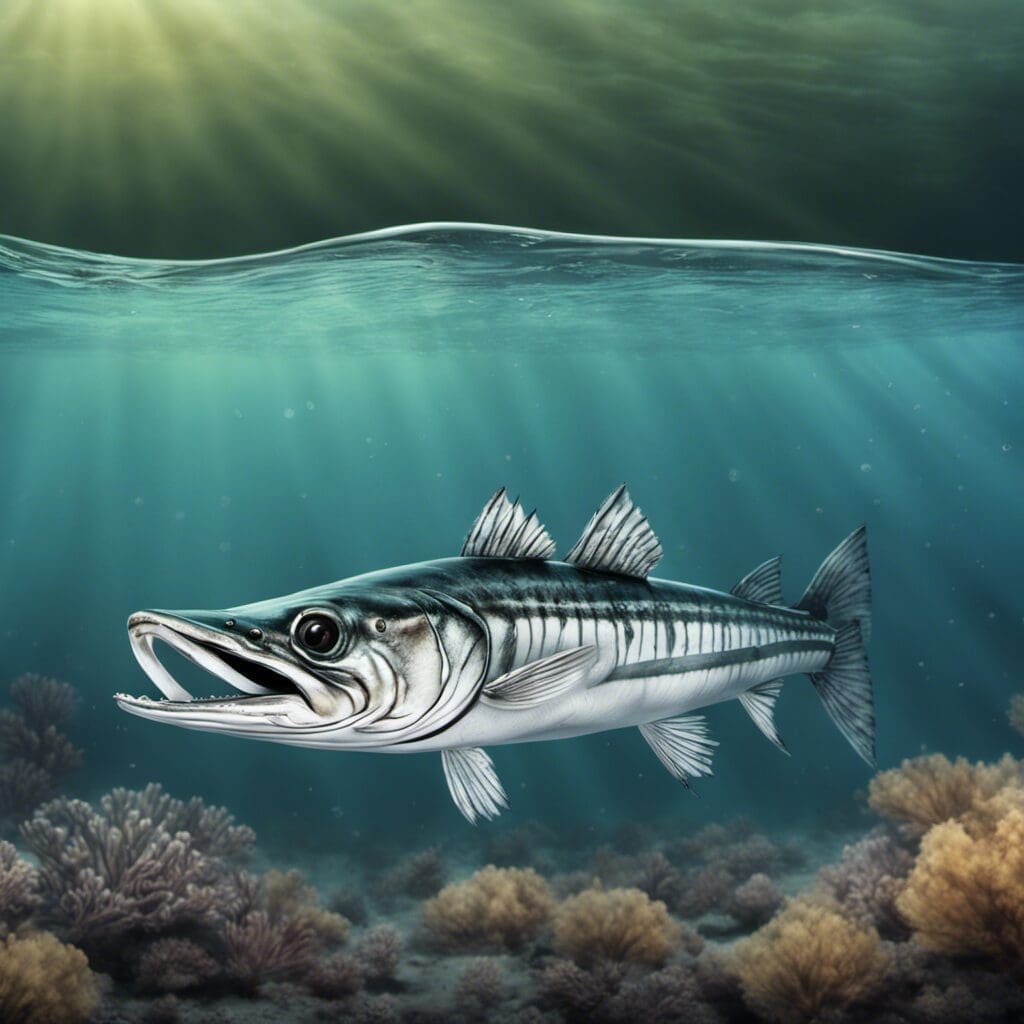Introduction
The barracuda, is a ray-finned fish known for its large size, fierce appearance, and ferocious behavior. The barracuda is a member of the family Sphyraenidae.
Conservation Status
Currently, the barracuda is not listed as an endangered species and thus far, they do not meet any criteria to be listed as vulnerable. Conservation efforts mostly include maintaining healthy marine ecosystems to ensure an abundance of prey for the barracuda to hunt.
Statistics
| Average | Range | |
|---|---|---|
| Length | 2-5 feet | 1-6 feet |
| Weight | 20-50 pounds | 5-100 pounds |
| Average Lifespan | 14 Years | – |
Distribution
Barracudas are found in tropical and subtropical oceans worldwide. The great barracuda has a western Atlantic and eastern Atlantic distribution.
Habitats
Barracudas prefer saltwater, but can also be found in brackish water conditions. They typically stay near the top of the water, within 325 feet of the surface, enjoying warmer temperatures between 72°F to 82°F.
When and Where to See
You can spot barracudas year around, with a strong presence during the summer months, particularly around dawn and dusk.
Best Fishing Locations
How to Catch
When fishing for barracudas, shiny, fast-moving lures can simulate the flash of their typical prey. Techniques include trolling or casting in the areas where they congregate, such as reefs and shipwrecks.
Identification Guide
Barracudas have a slender, streamlined body that is silvery-gray in color. They have long, pointed heads with a fierce set of teeth.
Culinary Information
If prepared properly, barracuda can be a great source of protein. It can be grilled, baked, or broiled, and has a rich, sweet flavor that stands up well to strong marinades.
Nutritionally, barracuda is a good source of omega-3 fatty acids, vitamins B12 and B6, magnesium, and other beneficial nutrients.
Behaviour
Barracudas are solitary hunters, although younger ones may gather in schools. They are ambush predators, relying on surprise and short bursts of speed to capture their prey.
Predators and Threats
Large pelagic species, such as sharks, killer whales, and large tuna are known to prey on Barracuda. Human activities such as overfishing and pollution also pose threats to this species.
Cultural/ Historical Significance
In many cultures, barracudas are regarded with awe and respect due to their formidable size, sharp teeth, and fearsome reputation.

